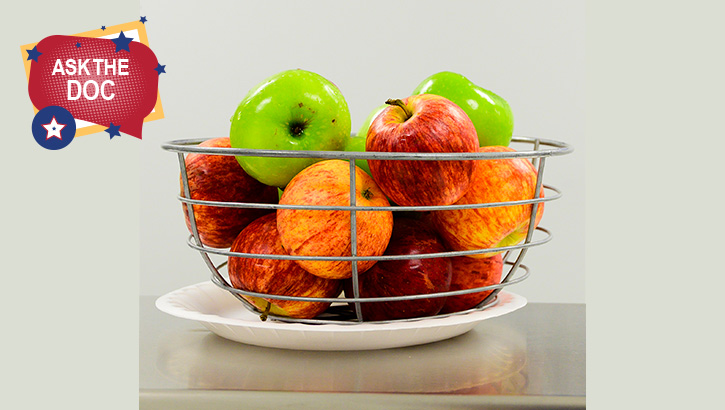Imagine this: you’re on a flight back to the US after a long trip abroad. You’re tired, hungry, and ready to go home. You grab an apple from the snack basket on the plane and put it in your bag, thinking you’ll eat it later. You land, go through customs, and hand over your passport. The officer scans it and asks you to follow him to a separate room. He opens your bag and finds the apple. He tells you that you’ve violated the US agricultural regulations and slaps you with a $500 fine. You’re shocked, confused, and angry. How could this happen?

This is not a hypothetical scenario. It’s what happened to Crystal Tadlock, a Colorado woman who was fined for bringing an apple into the US from Paris in 2018. She said she had received the apple from a Delta Air Lines flight attendant and had forgotten to declare it at customs. She tried to explain her situation, but the officer was not sympathetic. He told her that the apple should have had a Delta sticker on it, and that she should have asked for a form to declare it. He also said that he had to note her passport for the violation, which could affect her future travel.
Tadlock’s case is not unique. Every year, thousands of travelers are fined or detained for bringing agricultural products into the US without declaring them. According to the US Customs and Border Protection (CBP), these products can pose a serious threat to the US agriculture and environment, as they can carry pests and diseases that could harm the crops, livestock, and natural resources. Some of the most common items that travelers bring are fruits, vegetables, meat, cheese, and plants.
So, how can you avoid getting into trouble for bringing an apple or any other agricultural product into the US? Here are some tips to help you:
– Check the CBP website before you travel. The CBP has a comprehensive list of what you can and cannot bring into the US, as well as the requirements and restrictions for each item. You can also use the CBP’s Can I Bring? tool to search for specific products and see if they are allowed or not. If you’re not sure, it’s better to leave it behind or consume it before you arrive.
– Declare everything. Even if you think the item is harmless or allowed, you still need to declare it on the customs form or to the CBP officer. If you don’t, you could face a fine of up to $10,000 or even criminal charges. Declaring the item does not mean you can bring it in, but it will save you from getting penalized for hiding it. The CBP officer will inspect the item and decide if it can enter the US or not. If not, they will dispose of it or confiscate it.
– Follow the rules. If the CBP officer tells you that you can’t bring the item in, don’t argue or try to sneak it past them. You could get into more trouble and risk having your passport noted or your Global Entry status revoked. If you have a valid reason for bringing the item, such as a medical prescription or a religious purpose, you need to provide proof and documentation to support your claim. You also need to make sure that the item is properly packaged and labeled, and that it meets the CBP’s standards for quality and safety.
– Be polite and cooperative. The CBP officers are doing their job to protect the US from potential threats. They are not trying to ruin your trip or make your life difficult. If you are respectful and honest with them, they will be more likely to help you and make the process smoother. If you have any questions or concerns, you can ask them politely or contact the CBP’s Customer Service Center.
Bringing an apple or any other agricultural product into the US may seem like a minor issue, but it can have serious consequences if you don’t follow the rules. By being informed, prepared, and courteous, you can avoid getting fined or detained, and enjoy your trip without any hassle.




